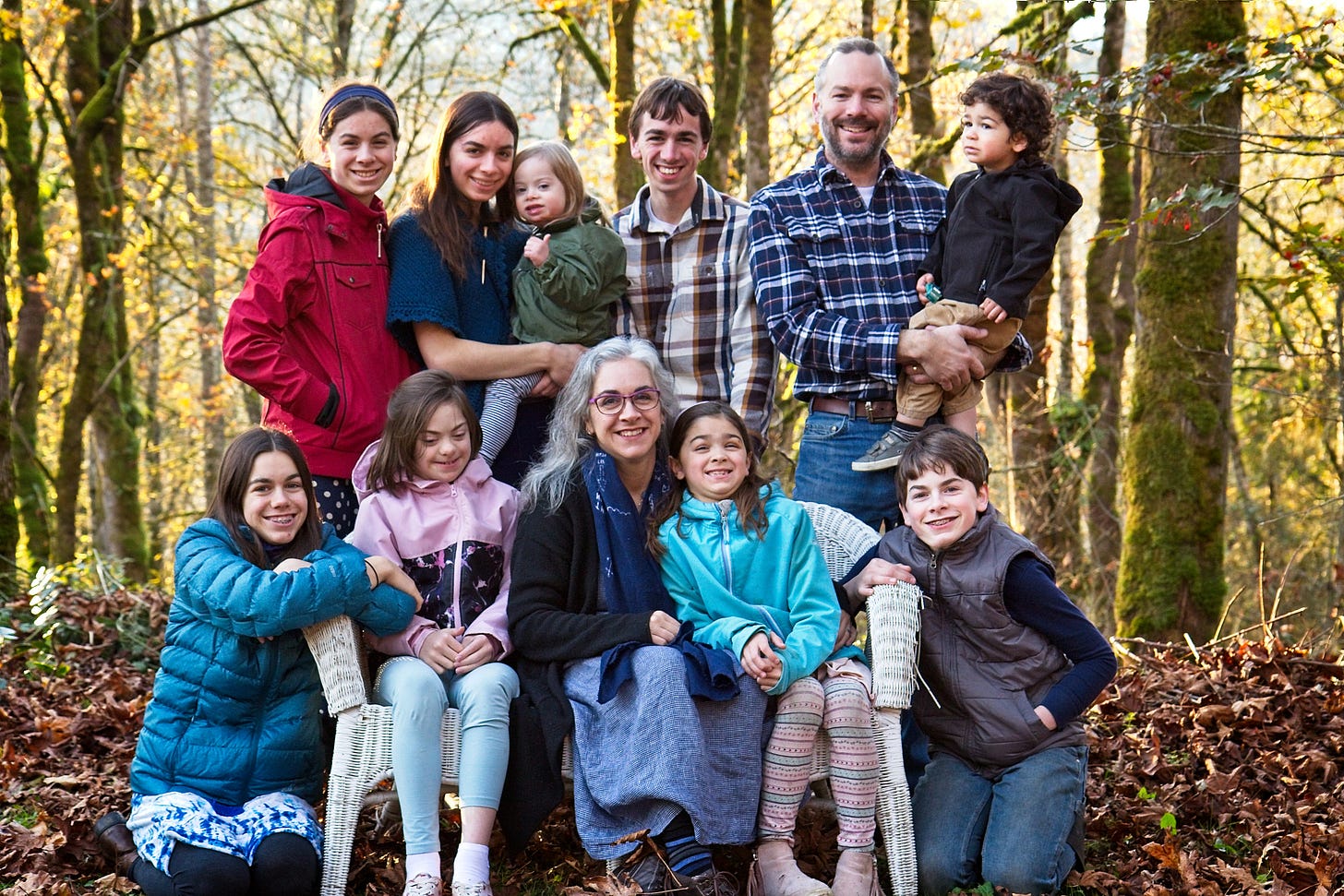Slow Schooling Chapter 19: The Peace of Our Children
What you're really doing...is teaching your grandchildren.

Spring softly swept in, with patches of sun flashing through the windows between diagonal downpours. I sat with my ten and twelve year olds at the table and in that 45 minutes or so, I oversaw their note taking, taught about exchanging Y for I in spelling words, and quizzed them on William Bradford and the multiplication tables. As they gathered up their daily planner and books, I swirled what was left of my latte. Was this enough? Am I doing enough? Are they getting enough?
It is the question that looms large at many homeschooling tables, and one that the secular world is quick to answer with a violent, “NO”. But it is the wrong question. It assumes that any educational institution (or parent, for that matter) will ever be enough, do enough. And it assumes that the child is a blank slate, without personality, interests, or needs that make him not only a unique individual, but...human.
Homeschooling, and specifically slow schooling, allows for children to blossom under the love and care of their family. It even allows the parent to blossom, allowing for their own pursuits in adding value to the family economy. There is a good balance of teaching and training in the areas of great importance to the family, and a freedom to explore and investigate areas of personal interest. The foundation to the slow school is the truth of every individual being valuable as an image barer of God. This brings about in society a real diversity, a real tolerance for difference, a real love and respect for the honor and dignity every single person carries from the womb to the tomb.
Education is not something that takes place only during certain hours in certain places around certain age groups. Schooling as we currently know it attempts to funnel this bright range of humanity onto one track (forced institutional schooling, or in some places of the world, no schooling at all for certain undesirable peoples) for one purpose: to forward the agenda of a cultural elite through the strength of propaganda and oppression of law. Allowing families the responsibility and joy of raising and educating their own children is an exercise in faith, one which many people in power shun for their own Babel-building reasons.
Slow schooling is not separate from life living. I’d like to encourage you to relax a little if you are too high strung about getting textbooks completed, especially in the younger (pre-high school-ish) years. And I’d like to also prod you to introduce curriculum that perhaps your child might never stumble upon on their own. Find a balance that is engaging, challenging, interesting, and fun. Concentrate more on cultivating an inquiring, intelligent mind than on preparing for a career that may or may not even exist by the time your child reaches adulthood. Consider who you are hoping will benefit from that education, and how you might take joy in whatever vocation God seems to be setting before your child.
Lastly, it’s crucial to maintain an eternal perspective on educating (and thereby discipling) your children. A hundred years from now, it will not matter how many good grades were recorded or even what kind of income they grew up into earning for themselves. What ultimately matters is not only your faithfulness in teaching your children about God, but in their faithfulness in responding to the gospel.
When you teach your children, you’re really teaching your grandchildren. Do it wisely. May we all reach for that glorious endeavor to teach our children of the Lord, and may their peace (and yours) be great because of it.
Isaiah 54:13 And all thy children shall be taught of the LORD; and great shall be the peace of thy children.
If you’re looking for a simpler, more purposeful life outside of the rule of technology, perhaps you can glean from my experimentations in seeking a more present life. Learn more about the book (and how to get it) by clicking on its image.




